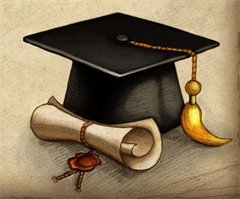| A bipartisan bill that would have eased the state’s four-decade-old ban on building new nuclear reactors has been vetoed by the Governor, setting up a potential override showdown. Meanwhile, legislation targeting the gun industry was signed into law over the weekend, but the new law now faces a federal legal battle. In other news, with the deadline approaching for the Governor to take action on legislation that passed the General Assembly this spring, several new laws are now in the books including a pair of measures establishing higher education scholarship programs. |
 | |
| Governor vetoes bipartisan nuclear legislation On Aug. 11, Gov. JB Pritzker issued a full veto of Senate Bill 76, which would have ended Illinois’ decades-old ban on the construction of advanced nuclear reactors. Senate Bill 76, filed by Republican State Senator Sue Rezin, garnered strong bipartisan support, receiving a 36-14 vote in the Senate and an 84-22 vote in the House of Representatives. Despite the wide margins of passage, the Governor’s veto message cited his concerns that the definition of an advanced nuclear reactor was “overly broad” and could allow for the building of large nuclear facilities. In response to the Governor’s veto, proponents of Senate Bill 76 pointed out that the legislation was amended before its final passage to narrowly define what constitutes an advanced nuclear reactor using federal law with the intent that only small modular reactors could be built. Additionally, Senator Plummer says the legislation could’ve helped Illinois maintain a robust and stable power supply. He says the Governor instead chose to listen to shortsighted special interest groups who only care about building wind and solar farms, leaving the state’s grid in jeopardy. | |
 |
| Legislation targeting gun industry signed into law, but faces legal challenge Gov. Pritzker announced the signing of House Bill 218, which allows the Attorney General, counties, and private citizens to sue members of the firearm industry for vaguely defined so-called “unlawful business and marketing practices.” Proponents claim the new law is intended to clarify that the gun industry is subject to Illinois’ Consumer Fraud and Deceptive Business Practices Act for marketing firearms, accessories and related products in a way that promotes illegal paramilitary or private militia activity in Illinois or that encourages people younger than age 18 to illegally possess, purchase, or use firearms. Opponents of the new law note that the gun industry is already subject to the state’s Consumer Fraud and Deceptive Business Practices Act, like every other business. The changes within House Bill 218 have very little, if anything, to do with actual consumer fraud or deceptive business practices. Opponents also point out that House Bill 218 was intentionally written with broad language to make it easier for the Attorney General and anti-gun groups to target gun manufacturers and Federal Firearms Licenses (FFLs) in order to put them out of business. Two days after the Governor signed House Bill 218, opponents of the law filed a lawsuit in the federal Southern District of Illinois. The lawsuit claims the new law violates the First Amendment right to free speech, the Second Amendment right to bear arms, and the 14th Amendment guarantee of due process. The lawsuit also claims that the law imposes liability in Illinois for actions committed by other individuals or in other states and is preempted by the federal Protection of Lawful Commerce in Arms Act. |
 | |
| Pair of higher education scholarship bills become law On Aug. 11, the Governor signed a pair of bills directed at establishing scholarship programs to attract talented high school graduates to attend Illinois universities and colleges. The first bill, House Bill 301, permanently establishes Illinois’ Aspirational Institutional Match Helping Illinois Grow Higher Education (AIM HIGH) Grant Pilot Program. AIM HIGH was originally a statewide pilot program that provided merit-based scholarships to Illinois high school graduates to incentivize more high-achieving students to attend Illinois public universities, rather than them taking out-of-state offers with the chance they never return. The second bill signed into law, House Bill 1378, establishes the Illinois Graduate and Retain Our Workforce (iGROW) Tech Scholarship Program. The iGROW program awards scholarships in order to recruit and train individuals to work in technology jobs that have a high demand for new employees and offer high wages. Scholarships may be made through the 2029-2030 academic year for a maximum of eight academic semesters. Senator Plummer believes both scholarship programs should help the state deal with the ongoing “brain drain” of young, talented high school graduates and help ensure that Illinois’ workforce remains full of strong and qualified candidates. | |
 |
| Governor takes action on remaining legislation As the 60-day deadline for executive action approached, the Governor took action on all remaining bills. Some of the Governor’s final actions included the signings of several bills supported by Senate Republicans. Those bills included: Senate Bill 1782 – States that a minor younger than age 16 is considered engaged in the work of vlogging when at least 30 percent of the vlogger’s compensated video content produced within a 30-day period included the likeness, name, or photograph of the vlogger’s minor child. House Bill 2317 – Allows anyone older than age 26 who has not purchased a fishing license in the last 10 years to be eligible to receive a one-time annual resident fishing license for $5. Any nonresident who has not purchased a nonresident fishing license in the past 10 years shall be eligible to receive a one-time annual sport fishing license for a fee of $10. House Bill 3326 – Requires insurance or managed care plans to offer, for an additional premium, coverage for hearing instruments if prescribed by a hearing care professional. House Bill 3814 – Allows students who participate in FFA and 4-H to be excused from school when attending their official events, and to be considered in attendance. |

